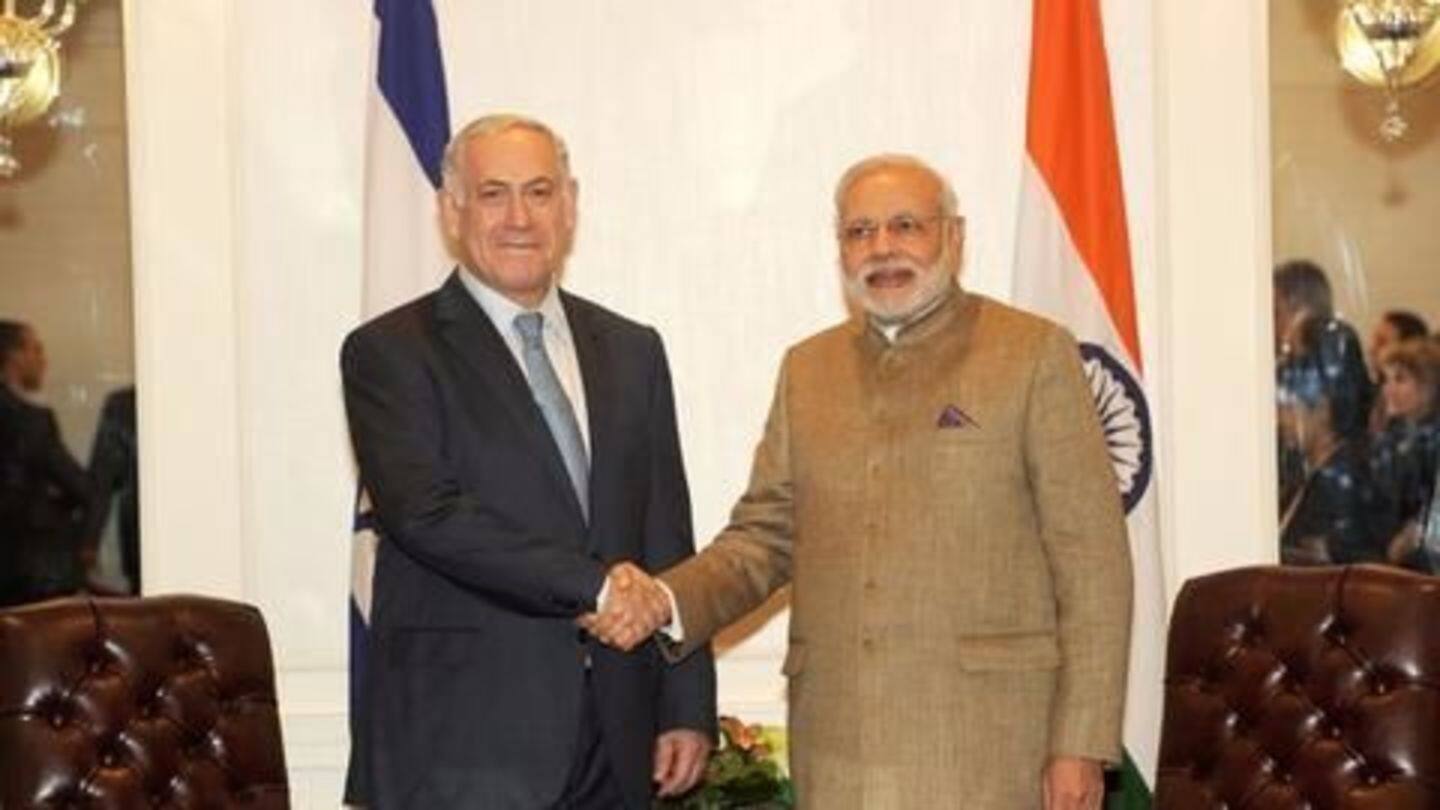
#ModiInIsrael: 5 things that define Indo-Israeli ties
What's the story
Narendra Modi is set to become the first Indian PM to visit Israel on July 4.
The ground breaking three-day visit will see him holding high-level talks with his Israeli counterpart Benjamin Netanyahu on a host of different issues.
The visit marks 25 years of full diplomatic relations between both countries.
In this timeline, we analyze five things that define Indo-Israeli ties.
Defense
Defense trade central to Indo-Israeli ties
India accounts for 41% of Israeli defense exports, making it the biggest market for Israeli arms, from 2012 to 2016.
Israel is India's third largest weapons source (after Russia and America) accounting for 7.2% of all arms imports from 2012 and 2016.
India has purchased sophisticated weapons, including Heron and Searcher drones, the Barak series surface-to-air missiles for Indian Navy warships, Tavor rifles etc.
Diplomacy
Both countries share close diplomatic relations
Modi's visit to Israel has been preceded by several high-profile tours to the Jewish nation by top Indian ministers.
This includes former home minister LK Advani (2000), former President APJ Abdul Kalam (2008), current home minister Rajnath Singh (2014), President Pranab Mukherjee (2015) and external affairs minister Sushma Swaraj (2016).
The visits signal growing diplomatic ties and convergences between both countries.
Agriculture
Israel's advanced agriculture tech benefits hundreds of Indian farmers
Indian farmers has been a major beneficiary of Israeli advancements in horticulture mechanization, protected cultivation, nursery management, micro-irrigation, especially in Haryana and Maharashtra.
Both countries have operationalized the Indo-Israel agriculture action plan for 2015-18, under which 15 centers of excellence in agriculture have been created to educate farmers.
The Agricultural Centre of Excellence at Gharaunda in Karnal, Haryana, is visited by 20,000 farmers annually.
Water Management
Water-starved Israel has lessons on conservation for India
Israel is located in a semi-arid region having limited fresh water sources.
This has forced it to develop advanced water-management technologies which can benefit India.
Last month, a memorandum of understanding (MoU) was approved by the Indian government with Israel on the National Campaign for Water Conservation in India.
In November 2016, both countries signed an MoU on water resources management and development cooperation.
Trade
Huge opportunities for expanding Indo-Israeli trade
Israel and India conducted bilateral trade worth $5 billion in 2016-17.
Israel imported mineral fuels and oil worth $1 billion, and precious stones worth $1.11 billion from India.
Diamond trade accounts for nearly 54% of total bilateral trade.
More needs to be done to boost trade ties as bilateral trade has declined by 18% since 2012-13.